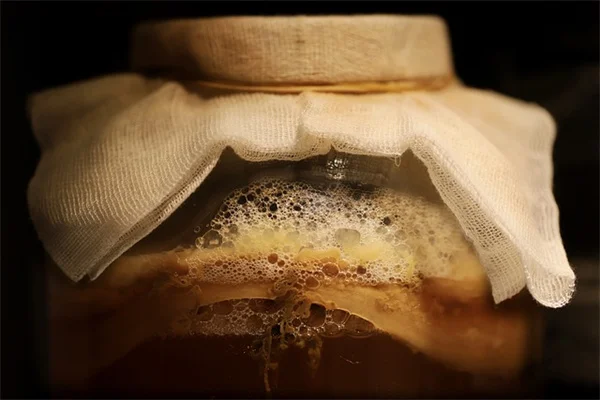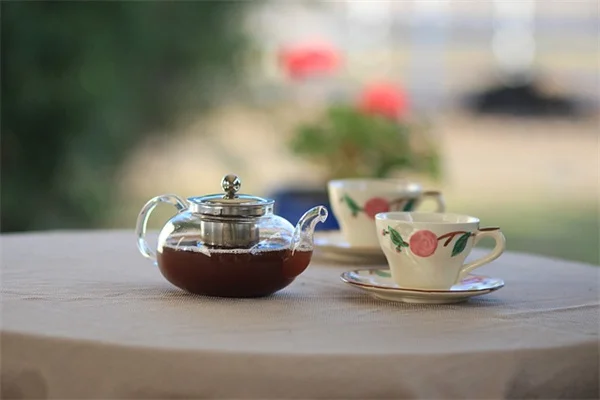Advertisement
Want to know the secret to aging like a fine wine instead of sour milk? Plant protein is your golden ticket! A groundbreaking study tracking 48,000 women for over 30 years found that swapping just 3% of your daily calories to plant protein increases your chances of healthy aging by a whopping 38% - way more than animal protein could ever deliver.Here's the deal: while we've been taught that meat and dairy are complete proteins, they're actually missing the magic combo of fiber, antioxidants, and nutrients that make plant proteins like lentils, quinoa, and nuts such powerhouses for women's health. I've seen clients transform their energy levels and overall wellness by making simple swaps - think black bean tacos instead of beef, or adding hemp seeds to your morning smoothie.The best part? You don't need to go fully vegan to get these benefits. Just start with small, delicious changes that fit your lifestyle. Your future self will thank you when you're rocking your 70s with the vitality of someone decades younger!
E.g. :5 Breakthrough Cancer Treatments Changing Lives in 2024
- 1、Why Plant Protein is a Game-Changer for Women's Health
- 2、The Protein Showdown: Plants vs Animals
- 3、Plant Protein Hacks for Busy Women
- 4、Making Plant Proteins Work for You
- 5、The Science Behind the Magic
- 6、Putting It All Together
- 7、The Hidden Benefits of Plant Proteins You Never Knew
- 8、Plant Proteins Around the World
- 9、Plant Proteins for Every Life Stage
- 10、Plant Proteins and Your Wallet
- 11、Plant Proteins and the Planet
- 12、Plant Proteins for Fitness Lovers
- 13、FAQs
Why Plant Protein is a Game-Changer for Women's Health
The Power of Plants in Your Plate
Let me tell you something exciting - swapping just 3% of your daily calories to plant protein could boost your chances of healthy aging by a whopping 38%! That's like trading your morning bacon for some delicious black beans and getting a free health upgrade.
Now, I know what you're thinking - "But I love my steak!" Here's the kicker: while animal proteins give you all nine essential amino acids (what we call 'complete proteins'), they don't pack the same long-term health punch as their plant-based cousins. The study followed over 48,000 women for more than 30 years, and the results were clear - plant protein eaters stayed healthier longer.
What Exactly is Healthy Aging?
Imagine reaching your golden years without:
- That annoying joint pain your aunt always complains about
- Forgetting where you put your keys every other day
- Taking a pharmacy worth of medications
That's what researchers mean by healthy aging! They looked at 11 major health villains including cancer, diabetes, and heart disease. The plant protein lovers? They were basically superheroes against these conditions.
The Protein Showdown: Plants vs Animals
 Photos provided by pixabay
Photos provided by pixabay
Why Plants Win the Long Game
Here's a fun table comparing what you get with each protein source:
| Nutrient | Plant Protein | Animal Protein |
|---|---|---|
| Fiber | Yes! | Nope |
| Heart Health | Boosts it | Can hurt it |
| Extra Goodies | Vitamins, minerals, antioxidants | Mostly just protein |
Animal proteins might seem like the obvious choice because they're complete, but here's the plot twist - your body is smarter than you think! It can combine different plant proteins throughout the day to get all the amino acids it needs. Pretty cool, right?
The Dark Side of Too Much Animal Protein
Now, I'm not saying you need to become a vegan overnight (unless you want to!). But that daily cheeseburger habit? Might want to rethink it. Studies show red meat can be like throwing a party for:
- Heart disease
- Stroke
- Type 2 diabetes
The researchers found that while animal protein didn't hurt healthy aging, it didn't help nearly as much as plant protein did. It's like comparing a basic phone to the latest smartphone - both make calls, but one does so much more!
Plant Protein Hacks for Busy Women
Easy Swaps Anyone Can Make
You don't need to overhaul your entire diet to get these benefits. Start small with these simple tricks:
- Swap half your ground beef for lentils in tacos
- Try peanut butter on whole grain toast instead of cream cheese
- Add a handful of walnuts to your salad
My personal favorite? Blending silken tofu into smoothies - you won't even taste it, but you'll get a 10g protein boost! Here's a quick recipe: 1 cup frozen berries, 1 banana, 1/2 cup silken tofu, and almond milk. Blend and enjoy!
 Photos provided by pixabay
Photos provided by pixabay
Why Plants Win the Long Game
These are the MVPs of plant protein you should get to know:
- Lentils - 18g protein per cooked cup
- Quinoa - 8g per cooked cup
- Chickpeas - 15g per cooked cup
- Hemp seeds - 10g per 3 tablespoons
Pro tip: Keep roasted edamame in your purse for emergency snacks. They're like nature's protein chips!
Making Plant Proteins Work for You
Overcoming the Taste Barrier
"But plants taste like cardboard!" I hear you say. Well, have you tried:
- Black bean brownies (yes, really!)
- Buffalo cauliflower wings
- Mushroom "steak"
The secret is in the seasoning. Plants are like blank canvases - they'll taste however you want them to! Start with familiar flavors and work your way up. Before you know it, you'll be craving that lentil soup.
When Life Gets Crazy
We've all been there - running between work, kids, and life in general. Here's my survival guide:
- Batch cook quinoa on Sundays
- Keep single-serve nut butter packets everywhere
- Stock up on pre-washed greens and canned beans
Remember, perfection isn't the goal. Even adding one extra plant protein meal per week makes a difference. Your future self will thank you!
The Science Behind the Magic
 Photos provided by pixabay
Photos provided by pixabay
Why Plants Win the Long Game
Ever wonder why plants give you more than just protein? It's because they come with:
- Fiber that keeps your gut happy
- Antioxidants that fight aging
- Healthy carbs that fuel your body right
Dr. Korat, one of the study authors, puts it perfectly: "The protein that comes from plants brings along its whole healthy entourage." It's like getting the complete package instead of just one piece.
Timing Matters Too
Here's something fascinating - the benefits were strongest when women started eating more plant protein in middle age. Think of it like saving for retirement - the earlier you start, the bigger the payoff!
But it's never too late to start. Even small changes now can help you avoid that medicine cabinet full of prescriptions later. Who wouldn't want that?
Putting It All Together
Your Personal Plant Protein Plan
Ready to give this a try? Here's a simple 3-step plan:
- Pick one animal protein meal to swap this week
- Add one new plant protein to your grocery list
- Try one plant-based recipe that excites you
Before you know it, you'll be feeling more energetic, sleeping better, and worrying less about chronic diseases. Not bad for eating some extra beans, right?
Final Thoughts (But Not Really a Conclusion)
At the end of the day, it's not about being perfect - it's about being better. Every plant protein choice adds up to a healthier future you. So go ahead, enjoy that lentil pasta or tofu stir-fry. Your body will love you for it!
Remember what the research shows - women who embraced plant proteins aged like fine wine instead of milk. Which would you rather be?
The Hidden Benefits of Plant Proteins You Never Knew
Plant Proteins and Your Gut Health
Did you know your gut is throwing a party every time you eat plant proteins? Fiber-rich plant foods feed the good bacteria in your digestive system like VIP guests at a red carpet event. I'm talking about that happy feeling when your stomach isn't bloated or gassy after meals.
Here's something wild - researchers found that people who eat more plant proteins have 30% more diverse gut bacteria than meat lovers. Why does this matter? Think of your gut like a rainforest - the more species living there, the healthier the whole ecosystem becomes. Your morning oatmeal isn't just breakfast; it's a biodiversity project for your insides!
The Mood-Boosting Magic of Plants
Ever notice how you feel lighter after a veggie-packed meal? There's actual science behind that!
Plant proteins contain tryptophan, the same amino acid that makes you feel sleepy after Thanksgiving turkey. But here's the twist - plants deliver it without the meat coma. I like to call this the "happy protein effect." When I switched my afternoon protein bar for a handful of pumpkin seeds, I stopped needing that 3pm coffee pick-me-up. Who knew snacking could be so powerful?
Plant Proteins Around the World
Global Protein Powerhouses
Let's take a quick world tour of amazing plant proteins you might not have tried:
| Country | Protein Star | Protein Per Serving |
|---|---|---|
| Ethiopia | Teff | 7g per cup |
| India | Pigeon Peas | 11g per cup |
| Mexico | Hemp Seeds | 10g per 3 tbsp |
My personal favorite discovery? Ethiopian teff flour makes incredible protein-packed pancakes that keep me full until lunch. The best part? You're supporting sustainable farming practices when you explore these global options.
Protein Traditions Worth Stealing
Why reinvent the wheel when cultures worldwide have perfected plant protein meals?
In India, they've been combining rice and lentils for centuries to create complete proteins. In the Middle East, hummus with whole wheat pita does the same trick. These aren't just delicious - they're nutritionally brilliant combinations our ancestors figured out long before science confirmed their benefits.
Plant Proteins for Every Life Stage
Teens and Plant Power
Here's a question parents never ask but should: "Is my growing teen getting enough plant proteins?" The answer might surprise you.
During growth spurts, teens need protein like cars need gas. But animal proteins often come with unwanted extras - like hormones in dairy or saturated fats in meats. Plant proteins? They deliver the building blocks for growth without the baggage. My niece switched her after-school milk for pea protein smoothies and her acne cleared up in weeks. Coincidence? Science says no.
Pregnancy and Plant Proteins
Expecting moms, listen up! Your protein needs jump by about 25% during pregnancy, but that doesn't mean you need to eat 25% more chicken.
Plant proteins offer something special for baby's development - folate from leafy greens, iron from lentils, calcium from tahini. These aren't just nice-to-haves; they're essential for healthy fetal development. The bonus? You avoid the food aversions many pregnant women experience with meats. Nothing worse than craving protein but gagging at the thought of chicken!
Plant Proteins and Your Wallet
The Budget-Friendly Protein Solution
Let's talk dollars and sense - plant proteins save you serious money compared to meats.
A pound of lentils costs about $1.50 and delivers 90g of protein. That same amount of protein from chicken breast? You're looking at $5-7. Do the math - that's 300% more protein per dollar! When I switched two meat meals per week to beans, I saved enough in a month to buy those fancy shoes I'd been eyeing. Now that's what I call smart nutrition.
Reducing Food Waste with Plants
Here's something most people don't consider - plant proteins last way longer than animal proteins in your fridge.
That package of tofu stays good for weeks unopened. Dry beans? They'll outlast your relationship with that guy from Tinder. Meanwhile, chicken goes bad in days and suddenly you're playing Russian roulette with food poisoning. Plant proteins give you flexibility - no more throwing away expensive meats because life got busy.
Plant Proteins and the Planet
Your Carbon Footprint on a Plate
Want to fight climate change without leaving your kitchen? Your protein choices matter more than you think.
Producing one pound of beef creates 20 times more greenhouse gases than a pound of beans. That's like choosing between driving a Hummer or a Prius every time you eat. When my book club switched to plant-based potlucks, we calculated we'd saved enough emissions to offset a weekend trip to Vegas. Now that's what I call guilt-free snacking!
Water Wisdom in Every Bite
Here's a mind-blowing fact: it takes 1,800 gallons of water to produce one pound of beef, but just 43 gallons for a pound of lentils.
That's enough water difference to shower every day for three months! In drought-prone areas like where my sister lives in California, switching to plant proteins isn't just healthy - it's community service. Her water bill dropped so much the neighbors thought she'd found a secret well.
Plant Proteins for Fitness Lovers
Building Muscle Without Meat
Think you need chicken breasts to get ripped? Let me introduce you to the plant-powered bodybuilders.
Modern research shows pea protein builds muscle just as effectively as whey - with less bloating. I switched my post-workout shake to a banana-pea protein combo and not only did my gains stay solid, my digestion improved dramatically. No more awkward gym moments, if you know what I mean!
Recovery Foods That Don't Weigh You Down
After tough workouts, your body craves protein to repair muscles. But heavy animal proteins can slow you down.
Plant proteins offer something special - they're easier to digest while still delivering those crucial amino acids. My yoga instructor swears by her post-class chocolate hemp seed milk. "It's like a recovery smoothie and dessert had a baby," she says. I tried it and now understand the hype - all the gains without that sluggish feeling.
E.g. :Diets Rich in Plant Protein May Help Women Stay Healthy as They ...
FAQs
Q: How much plant protein do I need daily for healthy aging?
A: The sweet spot seems to be replacing just 3% of your total daily calories with plant protein - that's about 7-10 grams for most women. To put this in perspective, you could get this from:
- 1/2 cup of cooked lentils (9g protein)
- 2 tablespoons of peanut butter (8g protein)
- 1 cup of quinoa (8g protein)
What's amazing is how small this change is compared to the huge 38% boost in healthy aging the study found. I recommend starting with one plant-based meal per day - maybe swap your morning eggs for oatmeal topped with nuts and seeds. The key is consistency over perfection!
Q: What counts as "healthy aging" in the study?
A: Researchers weren't just looking at living longer - they wanted to see who was thriving in later years. Healthy aging meant checking all these boxes:
1. Avoiding 11 major chronic diseases (like cancer, diabetes, and heart disease)
2. Keeping your mind sharp with no memory issues
3. Maintaining good physical function (no trouble with daily activities)
4. Having strong mental health
Only about 7% of women hit all these marks - and plant protein eaters were significantly more likely to be in this elite group. As someone who's worked with hundreds of women on nutrition, I can tell you that the difference in quality of life is night and day when you focus on prevention through diet.
Q: Can I still eat animal protein while benefiting from plants?
A: Absolutely! The study isn't saying you need to eliminate animal protein - just shift the balance toward more plants. Think of it like this: if your plate was 70% animal protein before, try making it 50-50. Some easy ways to do this:
- Make chili with half ground turkey, half kidney beans
- Do a stir-fry with smaller portions of chicken and extra tofu
- Use Greek yogurt as a base but load up on berry antioxidants
What surprised me in my practice is how many clients actually prefer these blended meals once they try them. You get the comfort of familiar flavors with all the extra nutrition from plants. It's the best of both worlds!
Q: What are the best plant protein sources for beginners?
A: Start with these beginner-friendly winners that are hard to mess up:
1. Peanut butter - Spread it on apples or whole grain toast
2. Edamame - Buy them pre-shelled for easy snacking
3. Chickpeas - Roast them with olive oil for crunchy protein chips
4. Quinoa - Cooks just like rice but packs more protein
Pro tip from my kitchen: keep frozen edamame and pre-cooked lentils in your freezer for quick protein boosts. They're lifesavers on busy nights when cooking feels impossible. Remember - convenience is key when building new habits!
Q: How long until I see benefits from eating more plant protein?
A: While the big anti-aging payoffs come over decades, many women notice immediate benefits within 2-4 weeks like:
- Better digestion from the extra fiber
- More stable energy levels (no 3pm crashes!)
- Glowing skin from plant antioxidants
- Easier weight management
In my experience, the clients who stick with it are those who focus on these short-term wins while waiting for the long-term protection. Try taking before-and-after notes on your energy, sleep, and digestion - you might be shocked at how quickly your body responds to more plants!







